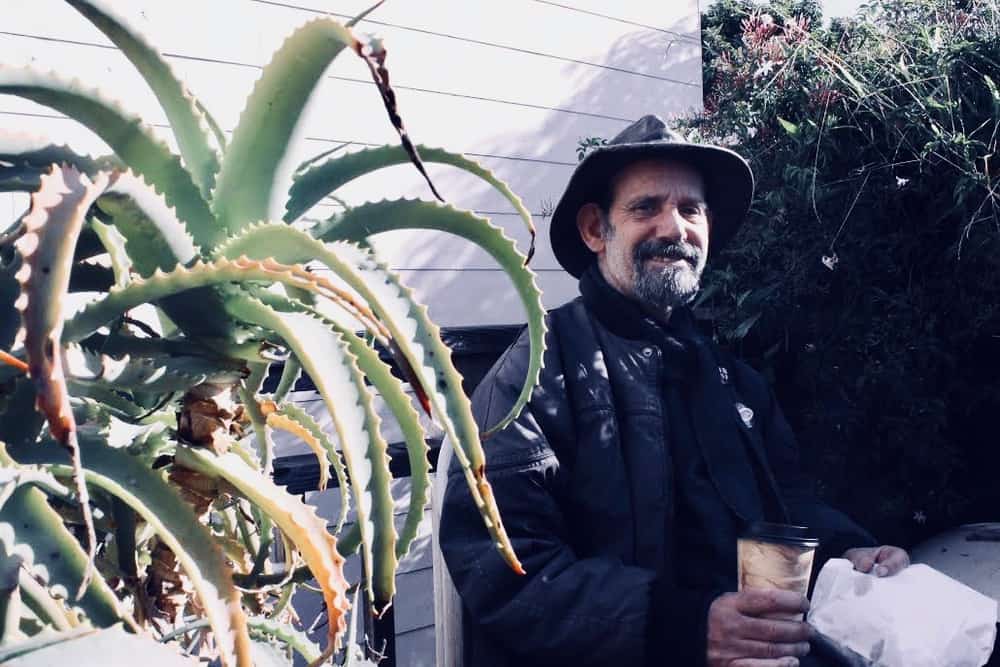Californians welcomed Proposition 64 with confetti and champagne celebrations. But the way in which regulation has rolled out, more and more people are waking up to what “adult-use” and “regulated cannabis” actually mean. And, unfortunately, it means watching the roots of Proposition 215—the law that made medical marijuana legal in California—wither under the Golden State’s new regime.
Sweetleaf Collective, a charity that provides free medical cannabis to low-income HIV/AIDS and cancer patients, found itself in a massive dilemma on Jan. 1, 2018. Under California’s new legislation, all cannabis businesses are required to pay taxes on products, including donations and samples. And, since Sweetleaf has a compassion-forward business model and doesn’t charge their patients for medicine, it’s impossible for the non-profit to fork out thousands of dollars in taxes. Thus, Sweetleaf has halted operations until further notice.
“Lives are on the line and, if we don’t solve this, people will die,” says Joe Airone, the founder of Sweetleaf. “With Prop. 64, non-profits weren’t invited to the table to talk about what we would need with this new law. So, that means, they made no distinction between commercial and non-commercial cannabis.”
California Senate Bill 420 was passed after Prop. 215 of 1996 in order to allow groups of people like Sweetleaf to grow, distribute, and dispense cannabis to those who need it. Together, SB 420 and Prop. 215 created a foundation of compassion that permeated throughout the cannabis industry in its formative years. However, as Airone puts it, “that model is sunsetting January 9th, 2019.”
Since the sunset clause goes into effect within 30 days, Sweetleaf partnered with the Dennis Peron Legacy Project to provide marijuana to HIV/AIDS patients one last time. On Dec. 18, 2018, a crowd of patients and Prop.215 advocates gathered at the Castro Castle, Peron’s home in the Castro District of San Francisco.
“Last year, we were able to give away 100 pounds of cannabis for free,” Airone declares. “And, this year, they’re telling us it’s going to be a five to six-figure tax bill if we do that same thing.”
Airone estimates the tax cost ranging between $20,000 and $200,000.

Though this is a huge let down for Airone, it’s the patients who’re most affected. As Airone mentioned earlier, their lives are at risk. Dominik Mollica, a long time medical marijuana patient, spoke with High Times and told us how Sweetleaf changed his life.
“[Cannabis has] really been great for me. It helps me with my pain and relaxes me,” Mollica says. “I smoke for relief. I don’t really like getting all strung out. It helps me with my appetite—it helps me have one [laughs]. And I’m glad it’s now legal in California. I just wish they didn’t make it so difficult for places like Sweetleaf to continue helping us.”
Scott Stauffer, another patient of Sweatleaf, also offered his condolences, “Without the support of people like Airone, my life would’ve been a lot harder than it is. I’ve made a tremendous come back from close to death. And it’s people like Airone and his loving abilities to reach out to the AIDS community and help us in anyway he can. It just gives me inspiration.”
The worst part of this whole predicament is the fact there’s plenty of marijuana available to help these people. “Most of our growers and cultivators were some of the first people trying to get permits,” says Airone. “So, all of the cannabis they grew this year is subject to tax. They want to give it to us. There’s cannabis sitting on some of these farms, waiting to get to the supply chain of compassion and get to patients. But there’s taxes attached to it and until we raise the money to pay those taxes that cannabis is just sitting at the farms.”
There have been attempts to allow non-profit organizations like Sweetleaf to continue to give away free cannabis to those who need it. Senate Bill 829 had these intentions and reached California Governor Jerry Brown. He vetoed it, however.
“With Brown, I don’t think he really understood what was going on with compassion,” says Airone. “All he saw in that bill was that it was going to eliminate some taxes on cannabis. And he didn’t want to eliminate any taxes. And he didn’t realize that by vetoing that bill, patients’ health is going to suffer and some of those people are going to die.”
Luckily, there remains hope. San Francisco Senator Scott Weiner introduced a new bill, SB 34, which will withdraw all taxes on compassionate cannabis if it goes through. Keeping this bill strongly in mind, Sweetleaf provided eight ounces of flower for each of the patients who attended at the event. The goal is that each patients’ herb will last until the new bill goes through, which is expected by June 2019.












